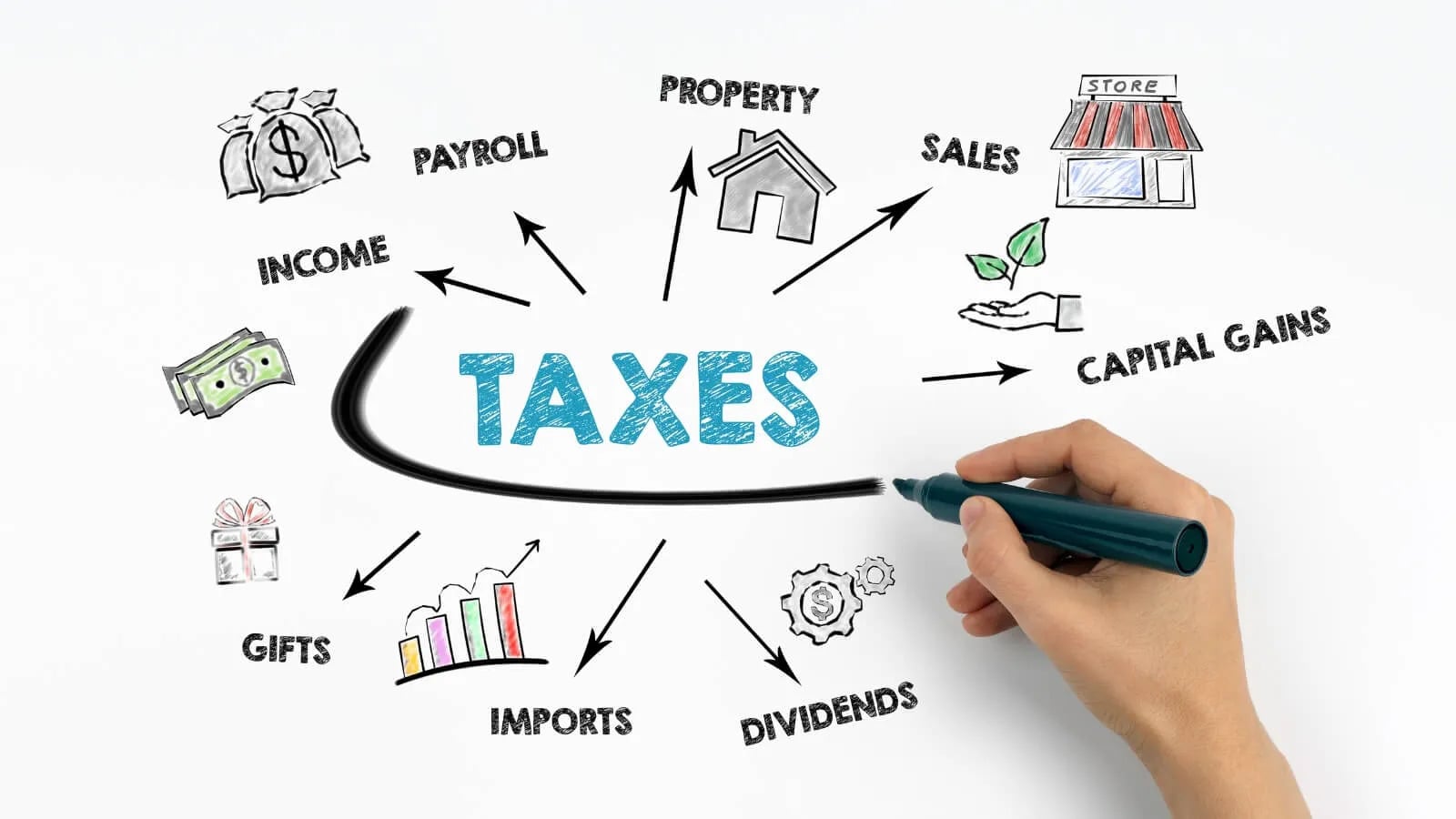Investing in real estate can be a lucrative way to build wealth and secure your financial future. While rental properties offer several benefits, one of the most significant advantages is the favorable tax treatment they receive. Before you know it, tax season will be here, and you should be prepared to pay what you owe and deduct what you don’t!
In this blog, we’ll explore the various tax advantages of rental properties, helping you understand how they can work to your advantage.

1. Mortgage Interest Deduction
One of the most substantial tax benefits of owning rental property is the ability to deduct mortgage interest. As a property owner, you can deduct the interest paid on your rental property’s mortgage from your taxable income. This deduction can significantly lower your overall tax liability. Keep in mind that this deduction applies to the interest portion of your mortgage payment, not the principal.
Your mortgage lender should have sent you a Form 1098 detailing the interest you paid for the year sometime in January or early February. When you file your tax return, you usually take the deduction on IRS Schedule E, which is for owners of residential rental property.
2. Depreciation
Depreciation is another powerful tax benefit that rental property owners can leverage. Many people consider their homes to be assets that grow in value over time, while a rental property is more of a business asset.
If you own a rental property, you can probably deduct that depreciation on your tax return each year. But the math isn’t straightforward. There are several methods for calculating depreciation on a rental property, which is why it’s a good idea to seek advice from a trained tax professional if you’re a property owner. Co-ops and condominiums have their own set of rules too.
The IRS allows you to depreciate your rental property over (not always the correct timeframe) 27.5 years for residential properties and 39 years for commercial properties. This means you can deduct a portion of the property’s value each year as a non-cash expense, even if the property is appreciating in value. This can offset your rental income, reducing the amount of income subject to taxation.
3. Repairs and Maintenance To Rental Property
The costs associated with maintaining and repairing your rental property are generally tax-deductible. This includes expenses such as fixing plumbing issues, repainting, or replacing appliances. It is important to understand what can and cannot be deducted in order to make sure you are abiding by tax laws. These deductions can help reduce your taxable income and are particularly advantageous in the early years of property ownership when maintenance costs are typically higher.
People misclassify repairs (or improvements) more often than not. Often, they mistakenly deduct capital improvements, which could be a red flag for the IRS. Instead, these improvements get capitalized and become part of the home basis paid. This could eventually lead to a bigger depreciation write-off, but they should not be considered tax deductions.
Here are a few examples of repairs or improvements that the IRS dictates should be capitalized instead of deducted:
- Additions to the home (bedrooms, patios, basement, etc.)
- Landscaping or sprinkler systems
- Storm windows
- New roof
- Water heaters
- Flooring
- Insulation
To learn more about the capitalization of home improvements for tax purposes, check out IRS Publication 527.
4. Operating Expenses
Operating expenses are similar to repairs and maintenance, except more deductions can apply to running the actual rental business overall. The IRS explains that necessary expenses may include:
- Advertising costs
- Leasing commissions
- Property management fees
- Supplies
- Landscaping
- Pest control
- Utilities paid by the landlord
- Property taxes
Learn more about these deductions on the IRS website.
5. Property Taxes
You can deduct property taxes associated with your rental property from your taxable income. These deductions can vary by location and can have a significant impact on your overall tax liability. Be sure to keep records of your property tax payments to claim this deduction accurately.
6. Owner Expense Deductions
Even if a real estate investor or property owner hires a property manager to take care of your property and residents, there may still be additional expenses you can deduct from your taxable income:
Continuing Education: Money spent on a real estate investing club, subscriptions to real estate or business journals, and tuition paid for continuing education (related to real estate) can all be deducted from rental property revenue.
Insurance Premiums: If you have insurance on your rental property, such as landlord insurance, you can deduct the premiums from your taxable income. This deduction can help offset the cost of insuring your property and provide additional tax savings.
Travel and Transportation: If you need to travel to your rental property for management and maintenance purposes, you can often deduct related expenses. This includes mileage, accommodation, and meals while you are away. Keep detailed records of your expenses and consult with a tax professional to ensure compliance with IRS guidelines.
As stated in IRS Publication 463:
- Travel must be mainly for business and have a clear business purpose
- The majority of the time must be spent on business activities and not leisure activities
- Travel expenses must be ordinary and necessary for the real estate business but not be overdone, such as staying in a reasonably-priced hotel versus a five-star resort
Furthermore, if you are looking to deduct auto expenses, make sure you are following the standard mileage deduction of 65.5 cents per mile. Or you could keep track of an itemized deduction such as gas, insurance, mileage, and car payments.
Home Office Deduction: If you have a dedicated home office space that you use for managing your rental property, you may be eligible for a home office deduction. This allows you to deduct a portion of your home-related expenses, such as utilities and maintenance, from your taxable income.
With the simplified option for home office deduction, the IRS allows taxpayers to claim a standard deduction of $5 per square foot, up to a maximum of 300 square feet.
7. Capital Gains Tax Advantage
When you sell a rental property, any profit made from the sale is typically subject to the capital gains tax. The good news is that this tax can be more advantageous than income tax. The capital gains tax rate is often lower than the income tax rate for higher income brackets, providing a tax advantage when you decide to cash in on your investment.
In addition to paying tax on depreciation recapture, an investor also pays a long-term capital gains tax of 0 percent, 15 percent, or 20 percent on any profit from the sale.
The 1031 exchange, or like-kind exchange, is a powerful tax advantage that allows property owners to defer capital gains taxes when selling a rental property and reinvesting the proceeds in another property of equal or greater value. This strategy enables you to continue growing your real estate portfolio without immediate tax obligations. It’s a smart way to leverage your investment while enjoying a tax advantage.
Record-Keeping Tips from the IRS
The IRS expects investors to keep adequate records in order to benefit from the tax advantages of owning a rental property. Here are some tips to help investors:
- Prepare financial statements
- Monitor rental property performance
- Identify the source of income & expenses
- Track deductible expenses
- Prepare tax returns
- Have a separate business bank account
Investors must be able to offer documentary evidence if their tax return is chosen for audit. Investors who are unable to provide evidence to support tax deductions may be subject to additional taxes, penalties, and interest.


